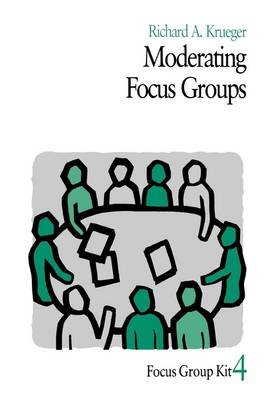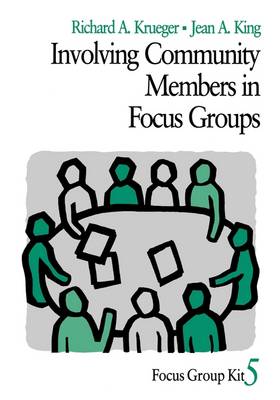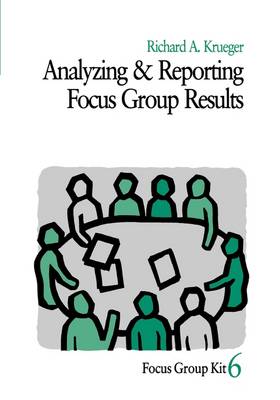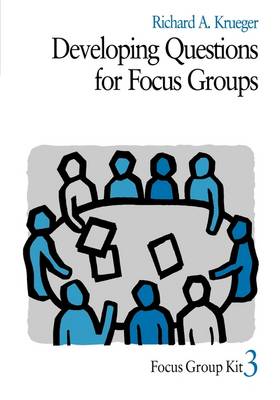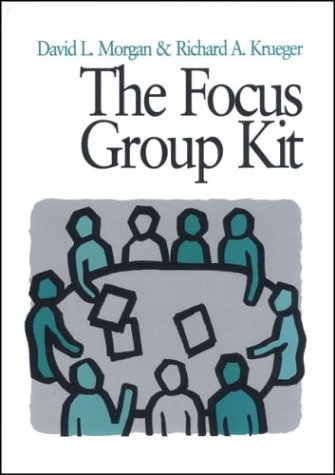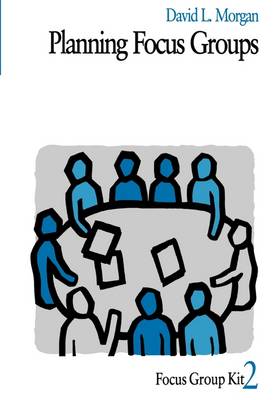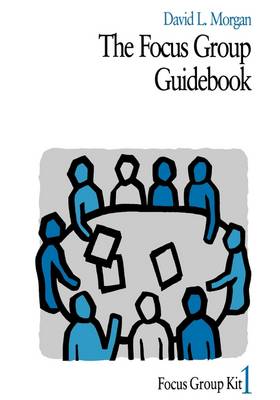Focus Group Kit
7 total works
Moderating Focus Groups is indispensable for those who want to improve their focus group moderating skills. Based on years of experience in moderating and training others to moderate, Richard A. Krueger offers scores of tips and sound advice on how to become a master in leading focus groups. The book is an easy-to-read overview of critical skills needed by moderators, the various approaches that successful moderators use, and strategies for handling difficult situations. Rookie moderators will find this book is an invaluable guide, and veteran moderators will discover tips and strategies for honing their skills.
Involving Community Members in Focus Groups
by Richard A. Krueger and Jean King
Struggling with focus groups questions? Asking the right questions is critical in focus group interviewing. Developing Questions in a Focus Group describes a practical process for identifying powerful themes and offers an easy-to-understand strategy for translating those themes into questions. Richard A. Krueger suggests ways of categorizing, phrasing, and sequencing focus group questions. Going beyond material presented in his earlier books, Krueger shares ideas for questions that get participants actively involved in the focus group interview by asking participants to make lists, create report cards, sort pictures, draw, cut and paste, or participate in a mini-debate. The results of these activities not only yield insightful information but are also interesting and fun. This book helps make the process of developing good questions doable by outlining a process and offering many examples. After reading this book, your focus groups will never be the same.
Author David L. Morgan covers the wide range of practical tasks required in the course of a research project when using focus groups. Throughout, Planning Focus Groups emphasizes the clarifying purposes of the research project in order to collect data that meet the goals. The author extensively and concisely covers the basic decisions that are necessary to plan a research project using focus groups, such as who should be in the groups, the total number of groups, their size, and much more. This volume also features a detailed discussion of timelines, personnel, and budgets. Among the other topics covered are recruitment, selecting locations, and recording and managing data. Practical material includes checklists, recruitment tools, timelines, and budgets.
Providing a general introduction to focus group research, The Focus Group Guidebook includes the appropriate reasons for using focus groups and what you can expect to accomplish with them. It provides a brief history of focus groups, a discussion of when to use focus groups and why, and several brief case studies illustrating different uses of focus groups. Author David L. Morgan also extensively provides the timeline and costs associated with focus groups, including a discussion of the ethical issues involved in focus group research. Thoroughly covering all the information to help you start your focus group project, this guidebook is appropriate for anybody beginning a focus group, as well as manager or clients who will be using focus groups.
